Willie Mays, widely regarded as one of the greatest baseball players of all time, is known for his incredible athletic prowess and his illustrious career in Major League Baseball (MLB). However, his life story encompasses more than just his achievements on the baseball field. Mays also served in the United States Army during the Korean War. Let’s review and honor Willie Mays’ life, his military service, key accomplishments, and the awards he received both on and off the field.
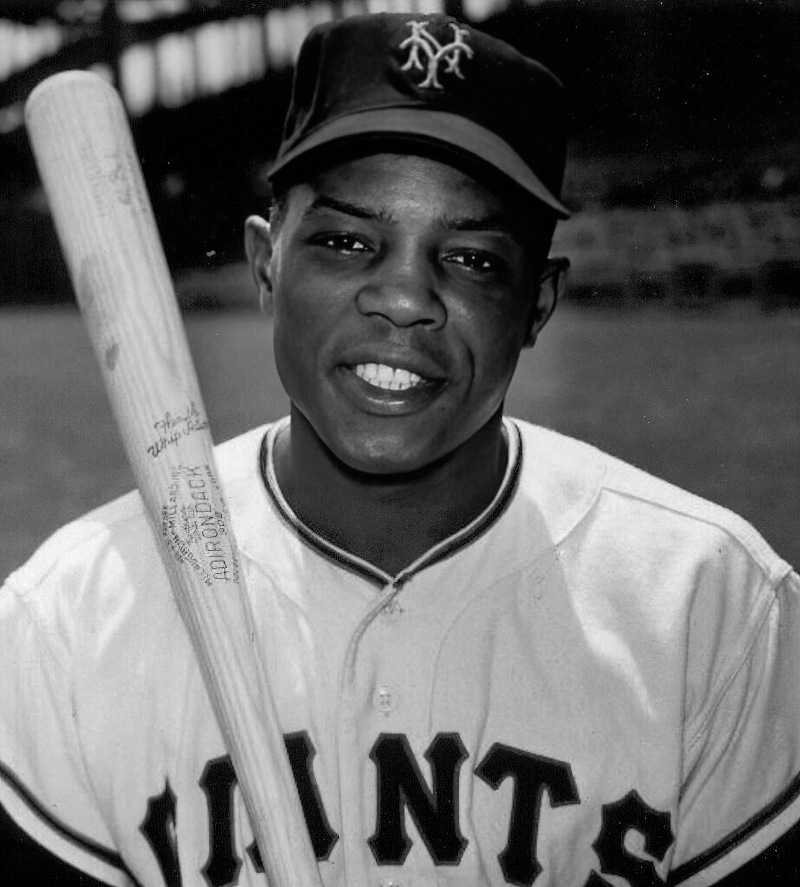
Willie Mays’ Early Life and Baseball Beginnings
Willie Howard Mays Jr. was born on May 6, 1931, in Westfield, Alabama. Raised in a segregated America, Mays’ early life was marked by the racial challenges of the time. Despite these challenges, he exhibited a natural talent for sports, particularly baseball, from a young age. Born to unmarried parents outside of Birmingham, Alabama in 1931, Willie’s mother was just 16 years of age when Willi was born. She abandoned him as a baby, remarried, and had 10 more children. Living just five miles away, Willie was raised by his father while Annie Satterwhite intermittently appeared in his life until her death when he was 21.
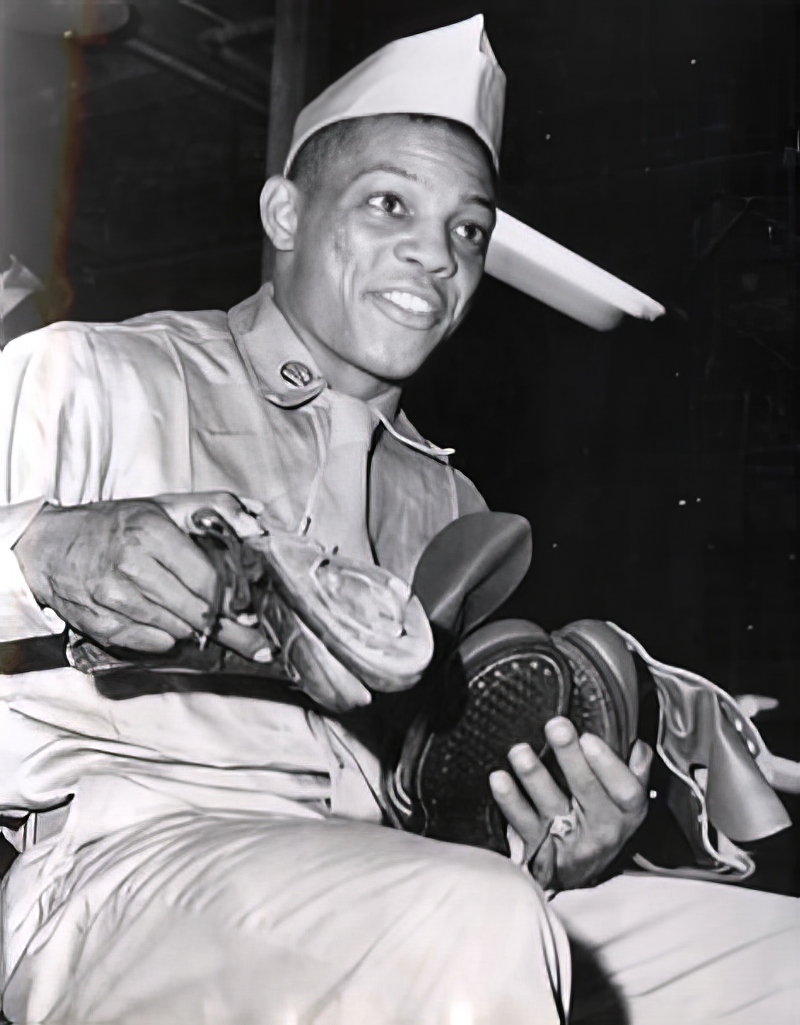
His father, William Howard Mays Sr., was a gifted baseball player in the Negro Leagues, and was nicknamed “Cat” for his graceful movements in the outfield. The elder Mays worked in the steel mills of Westfield, Alabama, outside Birmingham. It has often been reported that Cat put a baseball in Willie’s crib and that Willie learned to walk at six months, ambling toward a baseball sitting on a chair. Despite these stories, Mays claims that his father did not push him to be a ballplayer. Later, the Hall of Famer credited his father with instilling in him a resilience that would pay great dividends. “My father gave me that one thing, positive thinking, that allowed me to look past whatever was happening,” Mays said. “If you say to me, well, ‘there had to have been some pain,’ sure there was some pain. But if you can overcome your pain and do your job, the pain disappears the next day. That’s where the positive thinking comes in.”
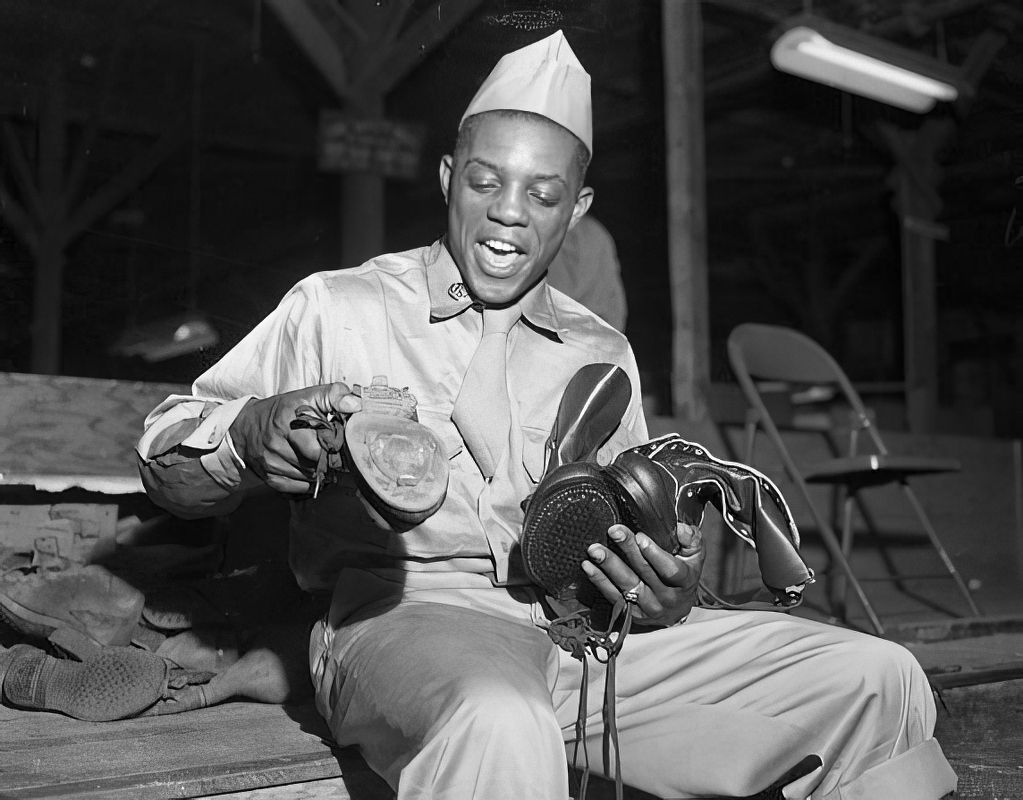
Willie Mays In High School and Entry into Professional Baseball
Willie Mays attended Fairfield Industrial High School, where he was trained to be a cleaner or presser for a laundry. He also played multiple sports, including basketball and football, but it was baseball where he truly excelled. His performances in high school games caught the attention of professional scouts, and at the age of 16, Mays began playing for the Chattanooga Choo-Choos in the Negro Southern League. In 1950, he signed with the New York Giants and began his journey in Major League Baseball.
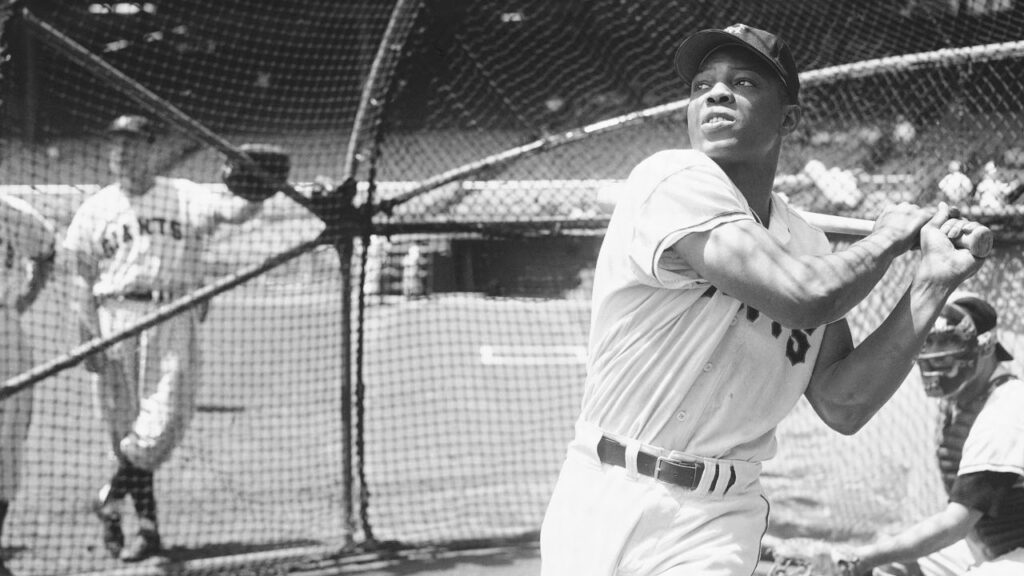
Willie Mays’ Military Service
- Early MLB Years and Breakthrough
Willie Mays made his MLB debut with the New York Giants on May 25, 1951. His rookie season was spectacular, earning him the National League Rookie of the Year award. Known for his all-around abilities, Mays was a five-tool player, excelling in hitting for average, hitting for power, base running, throwing, and fielding.
- “The Catch” and the 1954 World Series
One of Mays’ most memorable moments came during the 1954 World Series when he made “The Catch,” an over-the-shoulder grab that is still considered one of the greatest defensive plays in baseball history. This play helped the Giants secure a victory in the series, cementing Mays’ status as a baseball legend.
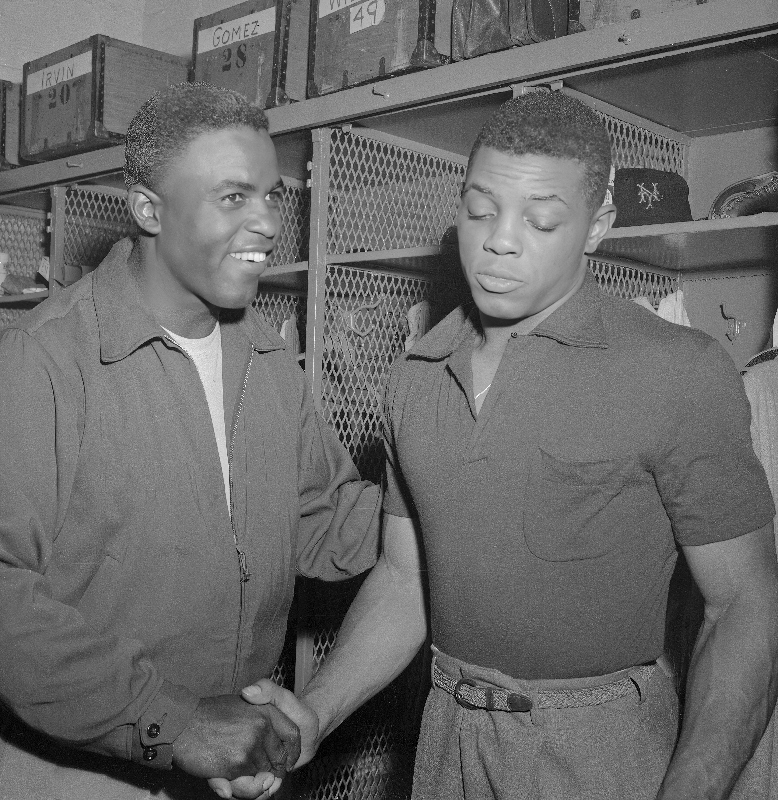
- Continued Excellence and Records
Throughout his career, Mays continued to dominate the game, achieving numerous milestones. He finished his career with 660 home runs, making him one of the top home run hitters in MLB history. He was selected to 24 All-Star Games, won 12 Gold Glove Awards, and was named the National League Most Valuable Player (MVP) twice.
Willie Mays’ Military Service
In 1952, at the height of his baseball career, Willie Mays was drafted into the United States Army during the Korean War. He reported for duty at Fort Eustis in Virginia, where he underwent basic training. His enlistment interrupted his budding baseball career, but Mays accepted his duty with the same determination and dedication that he showed on the field.
Mays’ military service caused him to miss a significant portion of the 1952 and 1953 baseball seasons. Willie Mays would see no action during his nearly two years of service, except on the baseball diamond, as the center fielder for the Fort Eustis Wheels. It was at Fort Eustis that Mays learned the basket catch from fellow Fort Eustis outfielder Al Fortunato. Mays remained in peak physical condition by playing baseball for the Army team, helping to boost the morale of his fellow soldiers and maintaining his own skills.
Willie Mays made no secret of his reluctance to be involved in the war or the Army. “Naturally, I’m not interested in the Army,” Mays told the Birmingham (Ala.) News after being drafted. “But if I have to go, I’ll make the best of it.”
After completing his military service, Willie Mays returned to the MLB in 1954, where he quickly reestablished himself as a dominant force in the game.
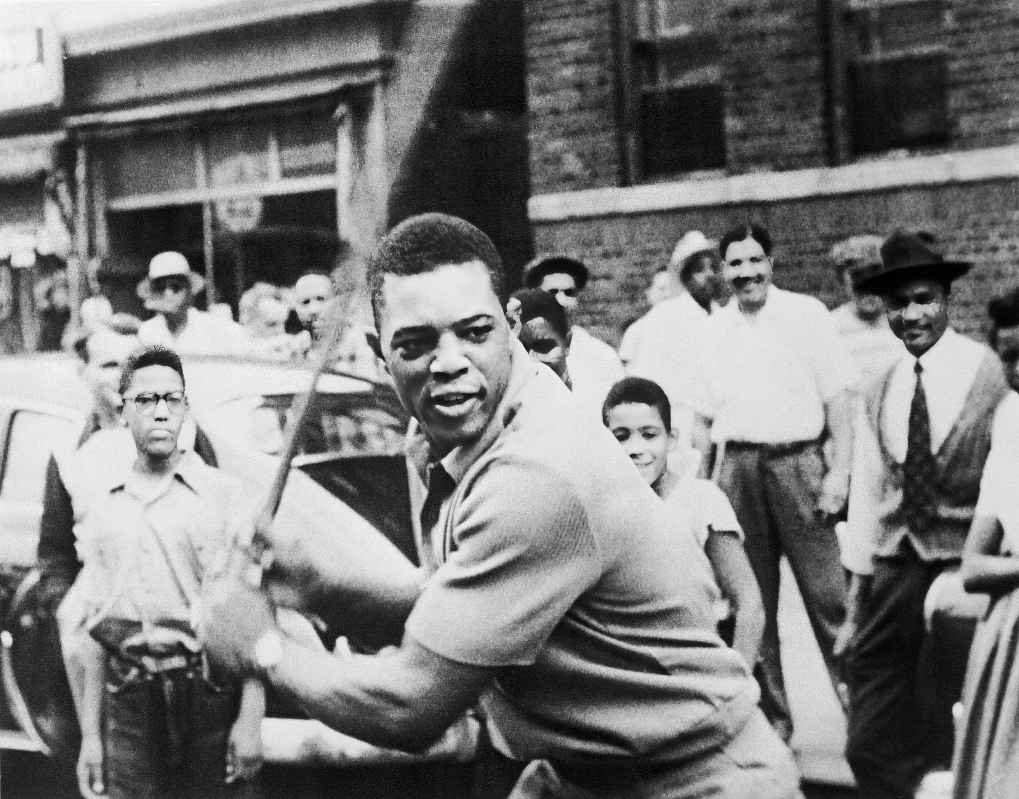
Willie Mays’ Accomplishments and Awards
Willie Mays’ baseball accomplishments are numerous and include:
- 660 Home Runs: Ranking sixth on the all-time home run list.
- 3,283 Hits: Demonstrating his consistency and skill as a batter.
- 24 All-Star Selections: Highlighting his sustained excellence over two decades.
- 12 Gold Glove Awards: Showcasing his defensive prowess.
- 2 National League MVP Awards: Reflecting his impact and value to his teams.
After retiring from baseball, Willie Mays continued to receive accolades, including:
- Induction into the Baseball Hall of Fame (1979): Recognizing his outstanding contributions to the sport.
- Presidential Medal of Freedom (2015): Awarded by President Barack Obama for his contributions to sports and society.
- Numerous Lifetime Achievement Awards: Celebrating his impact on and off the field.
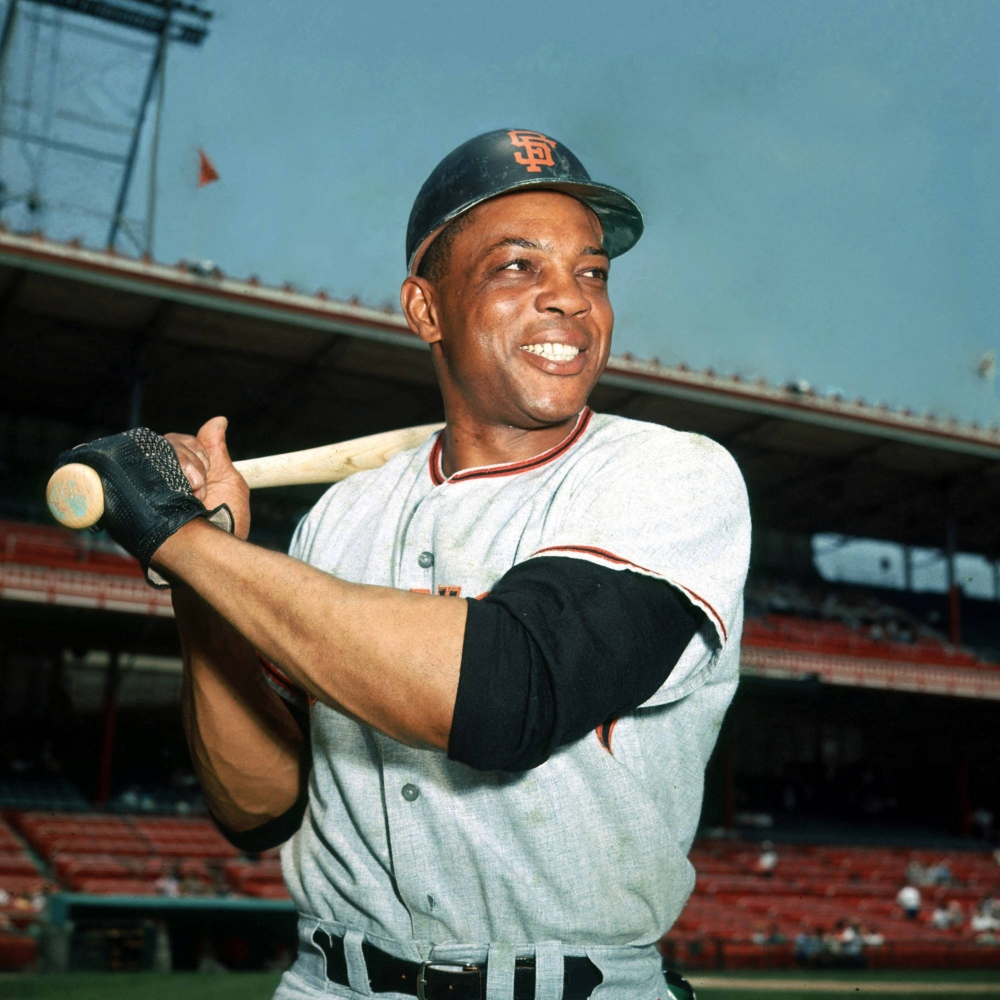
Willie Mays’ influence on baseball is immeasurable. He inspired generations of players with his exceptional skills, work ethic, and sportsmanship. Mays’ style of play and his approach to the game have become benchmarks for excellence in baseball.
Willie Mays’ Legacy and Philanthropy: Say Hey Foundation
The Say Hey! Foundation is dedicated to fulfilling Willie Mays’s dream of giving every child a chance by offering underprivileged youth positive opportunities through athletics, coaching, nutrition, education, and providing safer communities.
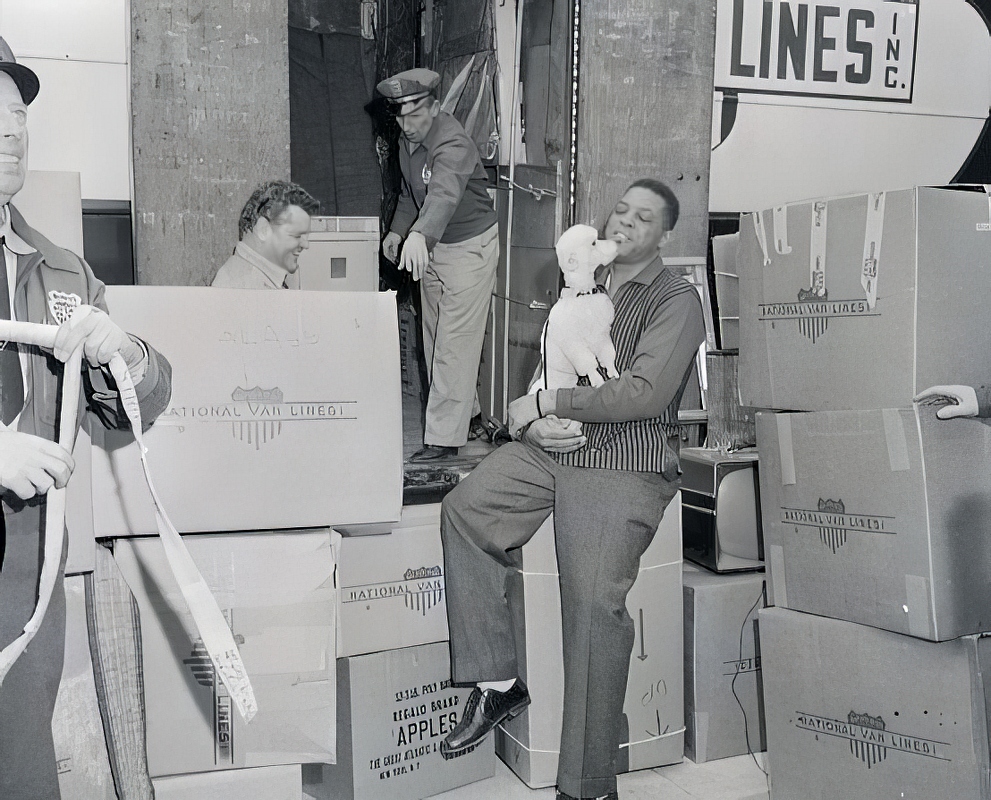
The Say Hey! Foundation was established by Willie Mays to give children in communities across America an equal chance to achieve their own true potential, beginning with the communities that first nurtured Willie Mays — from Alabama to New York to California and those communities where the need is greatest. Through his own gift and the generous support of fans and organizations, the Foundation is focused on supplying coaching, facilities, equipment, life-skills training, healthy choices, safety and security to youth. This includes renovating facilities, delivering sporting goods, and partnering with local organizations — including Boys and Girls Clubs, jobs training programs, mentoring and coaching programs, shelters, hospitals, schools, and professional teams — to provide wrap-around support for these youth. Through Willie’s extraordinary bequest, the Foundation works to make his dream a reality.
Honoring the Say Hey Kid
Willie Mays earned the nickname “The Say Hey Kid” early in his career due to his enthusiastic and friendly personality. Mays would often greet others with a cheerful “Say hey!” which endeared him to fans and teammates alike. When he passed away in Palo Alto, CA on June 18, 2024, at the age of 93, the “Say Hey Kid” left an indelible mark on the sport, with his name a constant throughout baseball’s hallowed record book and his defensive prowess — epitomized by “The Catch” in Game 1 of the 1954 World Series — second to none.
TogetherWeServed recognizes Willie Mays not only for his remarkable achievements in baseball but also for his service to the country. His story is a powerful reminder of the contributions and sacrifices made by athletes who served in the military, balancing their passion for sports with their duty to their nation.
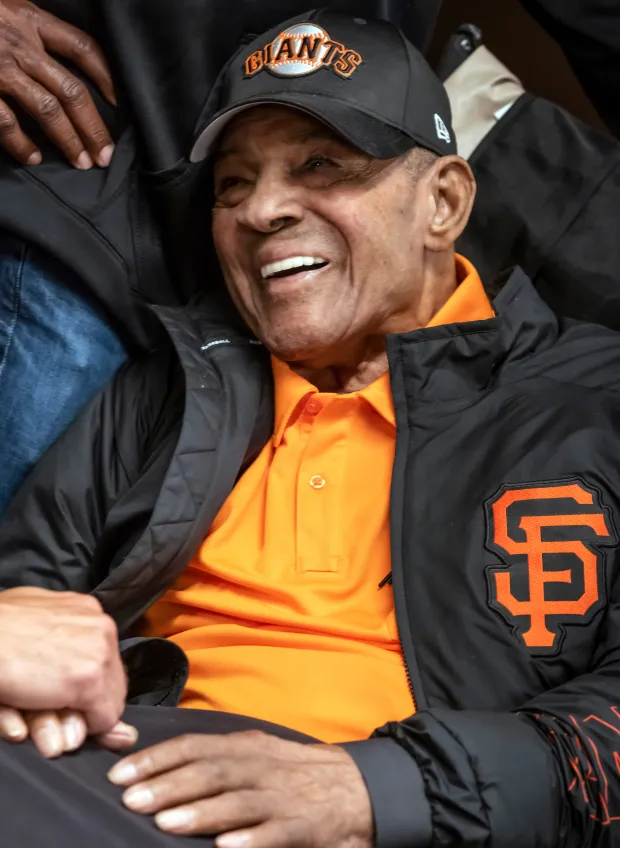
Learn About Other Famous Veterans On The TogetherWeServed.com Blog
If you enjoyed reading about Willie Mays’ military service, please browse the stories of other celebrities who served on our blog. You will also find military book reviews, veterans’ service reflections, famous military units and more on the TogetherWeServed.com blog. If you are a veteran, find your military buddies, view historic boot camp photos, build a printable military service plaque, and more on TogetherWeServed.com today.

I remember walking around just yelling, SAY HAY, WILLIE MAY! He was the of the neighborhood and my father loved watching him play. An example of true manhood!!! One of my heroes!!!